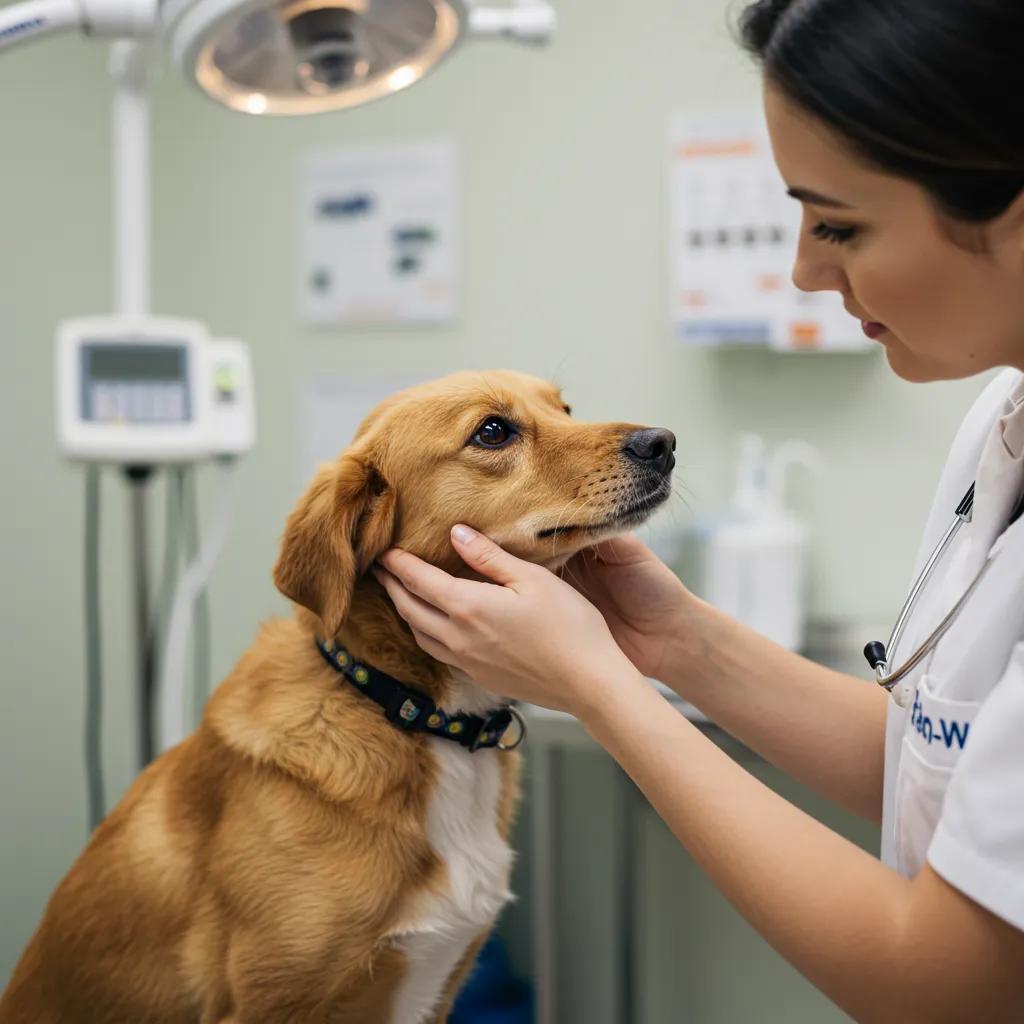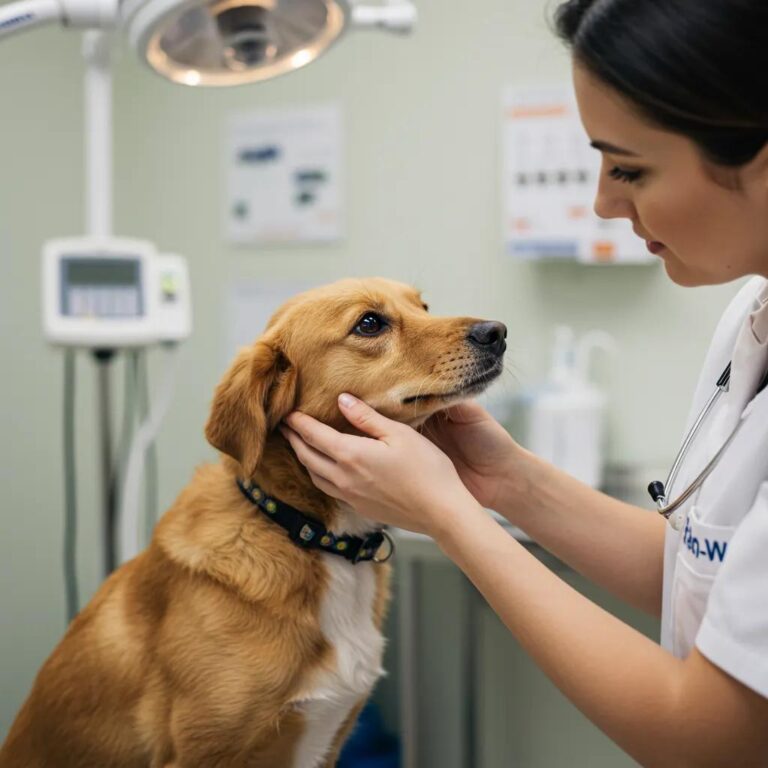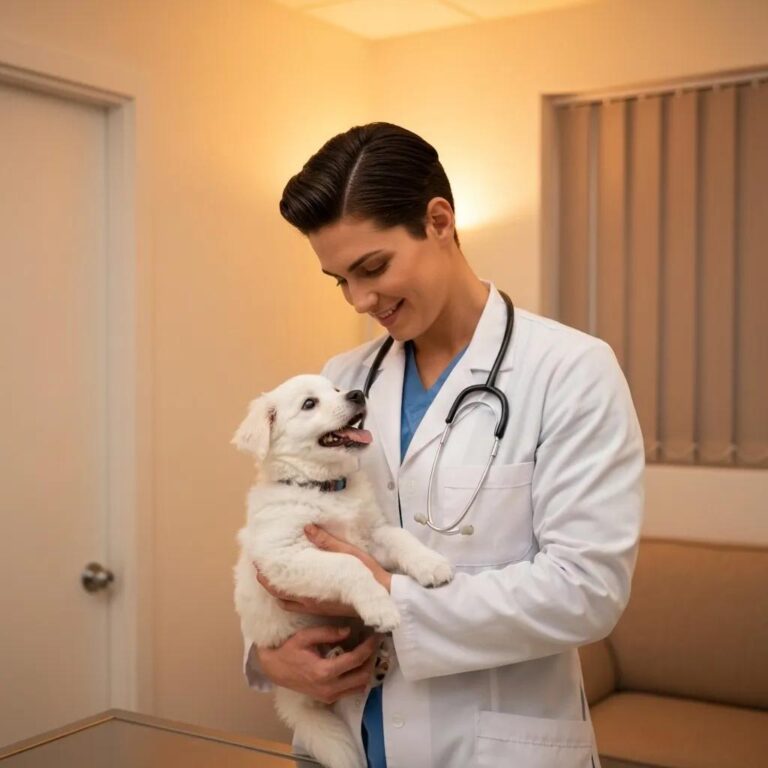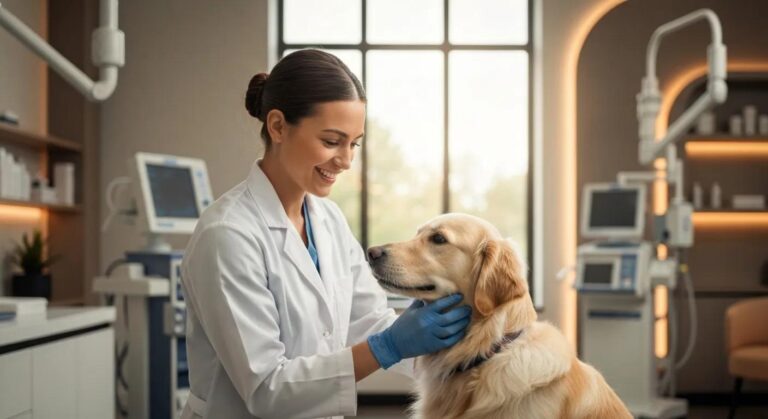Common Pet Ailments Treated at UrbanVet in Newport Beach: Spotting Symptoms, Getting Diagnosed, and Providing Care
Our beloved pets in Newport Beach often encounter a familiar range of health issues. Knowing the early signs can help you address them effectively. This guide covers common ailments affecting dogs and cats, detailing their typical symptoms and what to look out for. We’ll also outline how UrbanVet helps with diagnosis and treatment, including our on-site Pet Diagnostics and Soft Tissue and Orthopedic Surgery services, ensuring timely care. You’ll find checklists for symptoms, advice on when to use virtual triage versus an urgent clinic visit, and how our preventative care and membership options can help manage chronic conditions and reduce future costs. We’ll explore symptom recognition, common illnesses and their treatments, our diagnostic and surgical capabilities, and wellness plans designed for your Newport Beach pet. Keywords like “common pet illnesses Newport Beach vets,” “signs of a sick dog,” and “when to take my pet to the emergency vet” are included to help you find the information you need quickly.
What Are the Most Common Pet Health Concerns to Watch for in Newport Beach?
Common signs of illness in pets are noticeable changes in their behavior, eating habits, movement, or bathroom routines that signal an underlying health issue. These changes often stem from digestive, respiratory, urinary, joint, or dental problems, and spotting them early is key to prompt veterinary attention. Early detection leads to better outcomes through quicker diagnostics and supportive care, minimizing the risk of complications. Local environmental factors in Newport Beach, like heat or ingesting seawater, can sometimes exacerbate these common symptoms, making swift evaluation even more crucial.
This list highlights the most frequent symptoms you should keep an eye on.
- A sudden loss of appetite or refusal to eat for over 24 hours can be an early indicator of illness.
- Persistent vomiting or diarrhea, especially if it contains blood, warrants a veterinary check-up.
- Lethargy or a sudden collapse suggests decreased organ function or a serious systemic illness requiring immediate attention.
These observable signs help you determine which pets need urgent care and which might be monitored at home before you contact the clinic for guidance.
Use this quick symptom-to-action guide to help you triage concerns effectively. The table below matches symptoms to potential conditions and recommends immediate steps for Newport Beach pet owners.
Table: Symptom → Potential Conditions → Recommended Action
| Symptom | Potential Conditions | Immediate Action / When to Contact Us |
|---|---|---|
| Repeated vomiting with signs of dehydration | Gastroenteritis, accidental ingestion of toxins, intestinal blockage | Call us the same day; seek urgent care if your pet is weak or vomiting blood |
| Ongoing diarrhea, particularly with blood | Intestinal parasites, infection, inflammatory bowel disease | Collect a stool sample if possible and schedule diagnostic tests promptly |
| Difficulty breathing or unusual respiratory sounds | Lung issues, injury, allergic reaction | Seek emergency care immediately; do not delay transport |
| Sudden, severe lameness or inability to bear weight | Fracture, severe sprain, joint dislocation | Restrict movement and arrange for an immediate examination |
| Excessive thirst and frequent urination | Diabetes, kidney disease | Schedule an exam and diagnostic tests (bloodwork/urinalysis) for the same day |
This table helps clarify how recognizing symptoms connects to likely causes and practical first steps, empowering you to act confidently when your pet isn’t feeling well.
Which Symptoms Signal an Urgent Need for Veterinary Care for Your Dog or Cat?
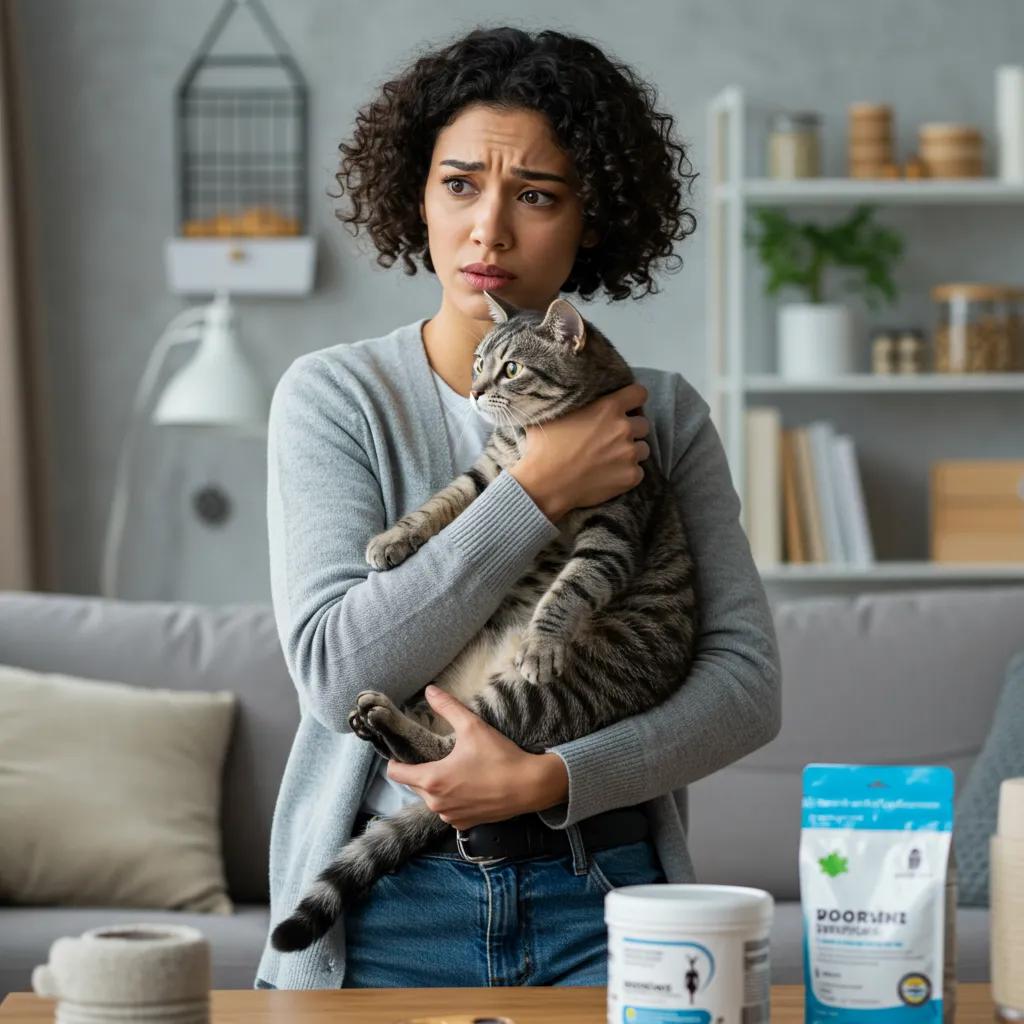
Urgent veterinary care is essential for “red flag” symptoms that indicate life-threatening conditions or rapid decline, requiring immediate stabilization. These critical signs include severe bleeding, difficulty breathing, collapse, repeated uncontrolled seizures, and evidence of poisoning or significant trauma. These symptoms suggest compromised oxygen supply, substantial blood loss, or systemic toxicity. If you observe any red flag symptoms, keep your pet calm, prevent further injury, and transport them safely to emergency care. Do not attempt to induce vomiting unless specifically advised by a veterinarian or poison control center. Our Pet Virtual Care service can help assess urgency in some situations, but it should never replace emergency transport for critically ill pets.
Follow this quick action list to help you decide on the next steps.
- If your pet is not breathing or is unconscious: Seek emergency care immediately and administer pet-safe basic first aid if you are trained.
- If severe bleeding or uncontrolled seizures occur: Stabilize your pet and transport them to urgent care without delay.
- If you suspect your pet has ingested a toxin: Contact a veterinary triage service and prepare for urgent treatment.
These steps help balance immediate actions you can take with the need for professional veterinary evaluation, preventing delays that could worsen the outcome.
Veterinary Triage: Determining the Urgency of Veterinary Care for Companion Animals
In veterinary practice, triage is typically performed on an individual animal basis. Veterinarians may consult with owners via telephone or telemedicine to ascertain whether immediate veterinary attention is required or if the animal can be managed with a scheduled appointment. This approach is particularly relevant when owners are uncertain about the severity of their pet’s condition, distinguishing between genuine illness and behavioral anomalies.
Triage and initial assessment of the emergency patient, 2018
How Can You Spot the Early Signs of Common Dog and Cat Diseases?
Early indicators of chronic or developing diseases often appear as subtle shifts in appetite, energy levels, weight, or elimination habits over weeks or months, hinting at early organ dysfunction. By observing your pet’s daily routines—food and water intake, urination and defecation patterns, and mobility—you can detect trends like gradual weight loss, increased thirst, or slight limping that warrant further investigation. When you notice these early changes, baseline diagnostic tests such as blood work and urinalysis can help identify metabolic or organ-related issues before significant clinical signs appear. Scheduling a Primary and Preventative Pet Care visit for screening allows for targeted testing and earlier management, often preserving your pet’s long-term quality of life.
Consistent observation and prompt screening are vital components of a preventative strategy that helps avoid more serious health crises.
Which Common Dog and Cat Ailments Does UrbanVet Treat in Newport Beach?
Common health issues treated by veterinarians in Newport Beach include digestive problems, joint and muscle conditions, respiratory infections, hormonal imbalances, and dental disease, each with unique causes and treatment paths. At UrbanVet, we address these conditions using a combination of medical treatments, diagnostic testing, and surgical procedures when necessary, providing specialized care for dogs and cats in our community. Understanding the likely cause, diagnostic steps, and treatment options helps you make informed decisions and know when to escalate care from home management to in-clinic diagnostics or surgery. Our comprehensive services—including Primary and Preventative Pet Care, Pet Diagnostics, Soft Tissue and Orthopedic Surgery, Pet Dentistry, Pet Virtual Care, and Pharmacy—support the full spectrum of diagnosis and treatment for these prevalent conditions.
The following table compares common ailments with the diagnostic methods we use and the treatment options available at UrbanVet, illustrating how our services align with your pet’s needs.
Table: Ailment | Diagnostics Used | Treatment Options at UrbanVet
| Ailment | Diagnostics Typically Used | Treatment Options at UrbanVet |
|---|---|---|
| Canine vomiting & diarrhea | Fecal tests, blood work (BW), X-rays | Fluid therapy, anti-nausea medications, dietary adjustments, Pet Diagnostics |
| Canine arthritis / joint pain | Orthopedic examination, X-rays | NSAIDs, physical rehabilitation, weight management, Soft Tissue and Orthopedic Surgery if needed |
| Feline upper respiratory infection | Physical exam, eye/nose swabs (cytology) | Supportive care, targeted medications, guidance on isolation |
| Feline diabetes | Blood glucose levels, fructosamine tests, urinalysis | Insulin therapy, dietary management, ongoing monitoring via Primary and Preventative Pet Care |
| Dental disease (dogs & cats) | Oral examination, dental X-rays | Professional cleaning, tooth extractions, Pet Dentistry |
This comparison highlights how specific diagnostic tools guide tailored treatments and when UrbanVet’s in-clinic services become integral to your pet’s care plan.
What Causes Canine Vomiting and Diarrhea, and What Treatments Are Available?
Canine vomiting and diarrhea can stem from dietary indiscretions, infections, parasites, toxins, or underlying systemic diseases, all of which influence the diagnostic and treatment approach. Initial assessments often involve checking hydration levels, performing fecal tests, blood work (BW), and X-rays if an obstruction is suspected, to pinpoint the cause and severity. Treatments range from supportive outpatient care—including fluids, anti-nausea medications, and dietary changes—to hospitalization for severe dehydration or surgery if an obstruction is identified. UrbanVet utilizes Pet Diagnostics for rapid testing and supportive outpatient management, with clear pathways for escalating to more intensive care or surgical consultation when necessary.
Early virtual triage through Pet Virtual Care can help determine if a same-day clinic visit is needed or if home care is appropriate.
Understanding and Diagnosing Diarrhea in Dogs and Cats
Diarrhea is characterized by an increase in the frequency, fluidity, or volume of feces. It is best classified by its duration (acute versus chronic), pathophysiologic mechanism, and anatomic location. Diarrhea is considered acute if it persists for less than 14 days and chronic when it lasts for more than 14 days. Acute, self-limiting diarrhea is a relatively common condition in dogs and cats, typically requiring minimal diagnostic investigation and treatment. In contrast to most animals experiencing acute diarrhea, diagnosing chronic diarrhea can be particularly challenging, as most affected animals do not respond to empirical therapies. This necessitates the development of a well-formulated and cost-effective diagnostic and therapeutic strategy. Specific therapeutic interventions are guided by a definitive diagnosis or the histologic characterization of intestinal biopsies.
Diarrhea, 2012
How Does UrbanVet Manage Canine Arthritis and Joint Pain?
Canine arthritis, often caused by degenerative joint disease, developmental issues, or injury, leads to chronic pain and reduced mobility. Managing it effectively requires a comprehensive assessment and a multi-faceted treatment plan. Diagnosis typically involves an orthopedic examination and X-rays to identify joint changes and guide medical or surgical interventions. Treatment focuses on weight management, physical rehabilitation, pain relief with NSAIDs and other medications, and, when structural instability is present, orthopedic referral and potential Soft Tissue and Orthopedic Surgery. UrbanVet combines diagnostic imaging with personalized treatment strategies and ongoing Primary and Preventative Pet Care to monitor progress and adjust therapies as needed.
Owners benefit from early detection and a combined medical and rehabilitation approach that can often delay or prevent the need for invasive surgery.
What Are the Signs and Care Options for Feline Upper Respiratory Infections?
Feline upper respiratory infections commonly manifest as sneezing, nasal and eye discharge, fever, and decreased appetite, indicating contagious respiratory viruses or secondary bacterial infections. Most cases are managed with supportive care, including hydration, nutritional support, and topical or systemic medications as needed. Diagnostic tests help identify complications or unusual pathogens. Implementing contagion control measures and isolation in multi-pet households helps prevent spread, while vaccinations as part of Primary and Preventative Pet Care can prevent severe illness. UrbanVet provides assessment and supportive care tailored to the severity of the infection, using Pet Diagnostics when complications or prolonged illness arise.
Prompt evaluation helps distinguish mild viral infections from cases that require antibiotics or more intensive treatment.
How Is Feline Diabetes Diagnosed and Managed at UrbanVet?
Feline diabetes is diagnosed by correlating clinical signs—such as increased thirst and urination (polyuria/polydipsia) and weight loss—with diagnostic tests like blood glucose measurements, fructosamine levels, and urinalysis to confirm persistent high blood sugar and guide treatment. Initial stabilization might require hospitalization for severe cases, but most cats begin outpatient insulin therapy, dietary changes, and owner training for home glucose monitoring. Long-term management relies on regular check-ups with Primary and Preventative Pet Care and Pet Diagnostics to adjust insulin dosages and detect complications early. UrbanVet supports owners through diagnostics, medication guidance, and follow-up care to improve glycemic control and overall quality of life.
Consistent monitoring and thorough owner education are crucial for maintaining stable blood sugar levels and preventing diabetic emergencies.
What Dental Diseases Affect Dogs and Cats, and How Are They Treated?
Dental diseases in dogs and cats encompass periodontal disease, tooth resorption (especially common in cats), and fractured teeth. These conditions can cause pain, bad breath, and systemic inflammation, negatively impacting overall health. Dental assessments involve an oral examination and X-rays to detect hidden issues and plan treatment. Options include professional dental cleanings, tooth extractions, and ongoing home care to prevent recurrence. UrbanVet’s Pet Dentistry services offer comprehensive oral care, including diagnostics and procedures tailored to each species, with a focus on pain management. Preventive dental care, such as regular cleanings and at-home hygiene, helps slow disease progression and reduces the need for more complex procedures.
Addressing dental disease enhances your pet’s comfort, appetite, and overall systemic health by reducing chronic inflammation.
How Does UrbanVet Utilize Diagnostics and Surgery to Treat Pet Ailments?
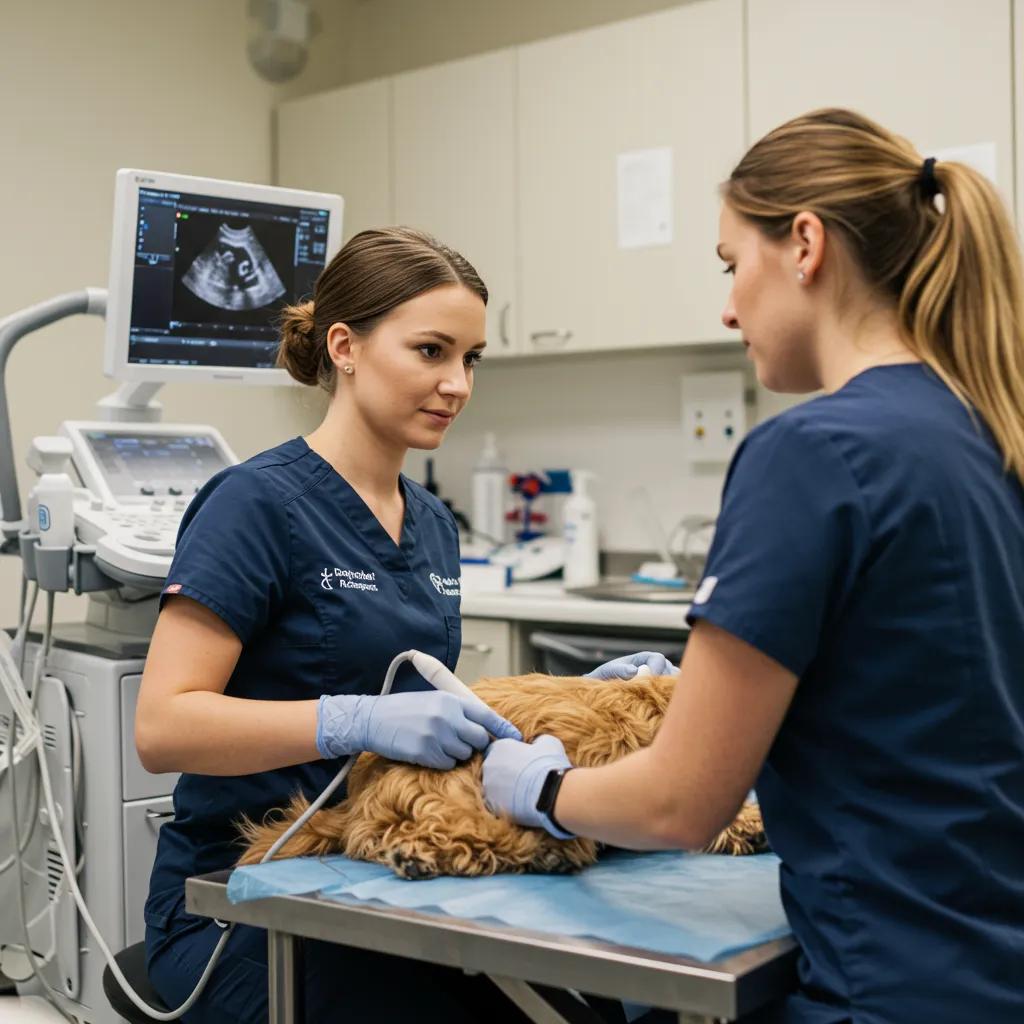
Diagnostic tools are fundamental for accurately identifying pet illnesses, revealing the underlying problem to guide targeted treatments and achieve better outcomes. UrbanVet uses in-house testing to minimize the time between a pet’s arrival and diagnosis, enabling earlier intervention and reducing complications from delayed care. Rapid diagnostics also facilitate tailored medical management or timely surgical referrals when structural issues or obstructions are identified. This diagnostic-to-treatment process helps owners understand the journey from symptom to definitive care and supports informed decisions about escalating treatment.
The diagnostic tools we employ illustrate how specific methods inform condition-specific decisions and when surgical intervention might be necessary.
UrbanVet’s diagnostic capabilities include:
- In-house CT scans for detailed evaluation of trauma, complex masses, and anatomy, aiding surgical planning.
- X-ray imaging to assess bone structures, chest conditions, and abdominal organs.
- Blood work (BW) to detect systemic illnesses, evaluate organ function, and identify metabolic disorders.
- Urinalysis to assess kidney health, detect urinary tract infections, and screen for diabetes.
These advanced modalities expedite diagnosis and allow for thorough perioperative planning when Soft Tissue and Orthopedic Surgery is recommended. We encourage owners to schedule diagnostic appointments or surgical consultations for persistent or severe health concerns.
What Diagnostic Services Does UrbanVet Offer for Accurate Pet Illness Detection?
Our in-house diagnostic services significantly reduce turnaround times for results, speeding up clinical decision-making and improving outcomes for both acute and chronic pet illnesses. Each diagnostic tool addresses specific clinical questions: CT scans for complex anatomical assessments, X-rays for bone and chest evaluations, blood work for systemic disease screening, and urinalysis for renal and urinary tract conditions, forming a comprehensive diagnostic suite. Quick access to these tests allows for the swift initiation of appropriate therapies, such as fluids, antibiotics, or surgical planning when indicated. UrbanVet integrates these diagnostics with physical examinations and owner-reported symptoms to develop an effective treatment plan.
Fast, accurate diagnostics reduce uncertainty and often prevent delays that could negatively impact your pet’s prognosis.
When Is Soft Tissue or Orthopedic Surgery Recommended for Pets?
Surgery is recommended when structural problems, obstructions, traumatic injuries, or irreversible conditions require operative correction to restore function or save a life, and when non-surgical methods cannot resolve the underlying issue. Decision-making criteria include imaging-confirmed abnormalities (via X-ray or CT), lack of response to conservative treatments, and an assessment of anesthetic risks versus potential benefits, forming a structured approach to intervention. Pre-operative diagnostics and stabilization ensure safer anesthesia and optimized recovery, while post-operative pain management and follow-up care support functional rehabilitation. UrbanVet’s Soft Tissue and Orthopedic Surgery services encompass perioperative planning, surgical repair, and coordinated aftercare to help pets regain their health and mobility.
We encourage owners to discuss the potential risks and expected recovery timelines with our surgical team to make well-informed decisions.
How Does Virtual Vet Care Support Sick Pets in Newport Beach?
Pet Virtual Care offers rapid triage, medication adjustments, and post-treatment follow-up for situations where a physical examination or immediate diagnostics aren’t necessary, helping to avoid unnecessary clinic visits while guiding you on the best next steps. It’s ideal for initial assessments of minor symptoms, prescription refills, and monitoring chronic conditions. However, it cannot replace in-person diagnostics when imaging, blood tests, or procedures are required. Virtual visits complement our in-clinic services by directing pets to Pet Diagnostics or scheduled surgical consultations when needed, ensuring continuity of care. Owners should utilize virtual care for convenience and initial guidance but seek in-person evaluation for red flag symptoms or when diagnostics are recommended.
Virtual triage helps prioritize our in-clinic resources while ensuring pets receive timely and appropriate care.
How Can Preventative Care and Wellness Plans at UrbanVet Help Avoid Common Pet Ailments?
Preventive care significantly reduces the incidence of disease by identifying risks early and implementing evidence-based strategies that interrupt common illness pathways, leading to better long-term health for pets. UrbanVet’s preventive services—including vaccinations, annual check-ups, parasite prevention, dental cleanings, and screening tests—work together to lower the likelihood of infections, dental disease, and chronic organ decline. Our wellness plans and membership options can bundle these services, making routine care more accessible and consistent, thereby reducing emergency visits and long-term treatment expenses. Owners who adhere to recommended check-up schedules based on their pet’s life stage enable earlier detection and management of issues before they become severe.
The table below outlines the features of our wellness plans, the services included, and their benefits for illness prevention and cost savings.
Table: Wellness Feature | Included Service | Benefit / Cost-savings
| Wellness Feature | Included Service | Benefit / Cost-savings |
|---|---|---|
| Routine exams | Annual or semi-annual Primary and Preventative Pet Care visits | Early detection of health issues and reduced risk of emergencies |
| Preventive medications | Parasite prevention and vaccination protocols | Lowers the incidence of preventable infections |
| Dental coverage | Scheduled Pet Dentistry cleanings | Reduces the need for extractions and prevents systemic complications |
Pet Wellness Programs: Proactive Healthcare for Enhanced Animal Health
A wellness program is a comprehensive package of preventive veterinary services recommended for companion animals. These programs are structured to assist owners in managing their pet’s health and mitigating disease. Typical components of wellness programs include immunizations, parasiticides, and regular veterinary examinations.
Wellness plans in practice: what works and why, 2014
What Preventative Services Reduce the Risk of Dog and Cat Diseases?
Specific preventive measures target common disease mechanisms and significantly reduce illness rates when applied consistently throughout a pet’s life. Vaccinations protect against infectious agents that cause respiratory and systemic diseases, parasite prevention interrupts the transmission of parasites that cause gastrointestinal and systemic issues, and regular dental cleanings prevent periodontal disease, which can contribute to systemic inflammation. Routine screening with blood work and urinalysis helps detect early organ dysfunction, allowing for management that prevents crises. UrbanVet’s Primary and Preventative Pet Care framework integrates these measures to lessen the overall disease burden and enhance longevity.
Consistent preventive care visits are the most practical way for owners to minimize future treatment complexity and costs.
How Do UrbanVet Membership Plans Make Illness Care More Affordable?
Membership plans typically combine routine exams, service discounts, and preventive care to help manage costs and encourage adherence to recommended veterinary visits, reducing unexpected expenses when illness strikes. By covering routine screenings and offering reduced rates on diagnostics or procedures through a structured plan, membership benefits can lower long-term costs for pets with chronic conditions. UrbanVet Membership Plans assist owners in budgeting for regular care, improving access to Primary and Preventative Pet Care and making it easier to follow monitoring schedules for conditions like diabetes or arthritis. This affordability encourages earlier intervention and often reduces the need for emergency-level treatments.
Owners should assess the plan inclusions against their pet’s specific risk factors to maximize the preventive value.
When Should You Schedule Regular Checkups to Detect Illness Early?
The frequency of checkups varies based on life stage and individual risk factors: puppies and kittens require frequent early visits for vaccinations and growth monitoring, adult pets generally need annual exams, and senior pets benefit from biannual screenings to detect age-related diseases sooner. Each visit should include a thorough physical examination and targeted screening tests—such as blood work, urinalysis, and dental assessments—tailored to the pet’s age and health history to identify potential problems before significant clinical signs emerge. Pets with chronic conditions require more frequent follow-up appointments to adjust treatment and monitoring plans under Primary and Preventative Pet Care. Scheduling regular exams ensures timely utilization of Pet Diagnostics and access to Pharmacy support for ongoing medications.
For owners in Newport Beach, combining scheduled in-clinic visits with Pet Virtual Care for interim concerns offers a balanced approach to ongoing health maintenance and cost-effective disease prevention.


